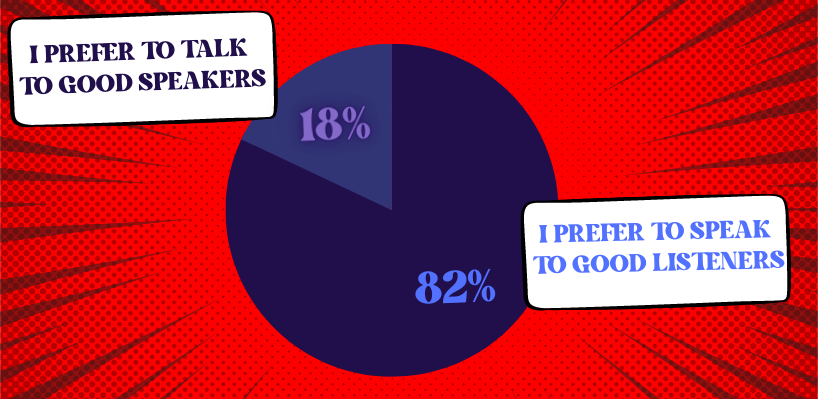THE PARADOX OF SOCRATES
Writing about active listening my intention is to create a meaningful interaction with the reader, someone who can look beyond the obvious and not just receive advice on how to become a good listener or learn about its benefits.
Active listening is not a skill that can be acquired by following specific “steps” and instructions. It is a state of mind and emotions that can be achieved when a person is willing to understand the Socratic paradox at its core, which is that the only thing they know is that they know nothing.
Professional success

The pursuit of professional success is a dynamic and growing trend that concerns the majority of people nowadays. Everyone wants or seeks to experience it in some way, depending on how they define success.
Moreover, intense competition is evident in every aspect of our daily lives. When people set goals, they want to achieve them, but often, despite their hard efforts, success eludes them.
While the reasons and parameters are many, depending on the circumstances, our communication, and specifically the skill of active listening, plays a significant role.
Let’s see!
Renewing knowledge and developing various skills through training courses and educational programs is very useful and drives a person to become a better professional and more competitive.
Personally, I constantly strive to broaden my knowledge and skills. But is that enough for professional success? And to put it differently, does acquiring more knowledge guarantee success? If the answer were affirmative, then most people would be successful. After all, in our times, knowledge and education are open to everyone and accessible to anyone.
The value is…
To listen! Or rather, to have the patience to understand the information when it is received. Information is not only verbal; it is also expressed through body language, facial expressions, and emotions.
Indeed, in most cases, non-verbal cues are the most significant. All we need to do is pay attention to them.
The reality is that in every communication, each person sees their own beliefs, thoughts, emotions, and experiences in their interlocutor. The result, in such cases, is poor communication or at best parallel monologues.

We all want to be heard. But what happens when we need to be the listeners? Do we recognize the
difficulty of effective listening? Do we understand that listening is an active process and not a passive one?
Focus on the speaker
Listening can be divided into three parts: before I listen, while I listen, and the outcome of listening. That is, what is my preconception, what do I hear, and what do I understand? Check your next conversation with these questions, and most likely, your conclusions will be very interesting.

“See the story, don’t hear the words!!!”
— Elias Kalyvas
